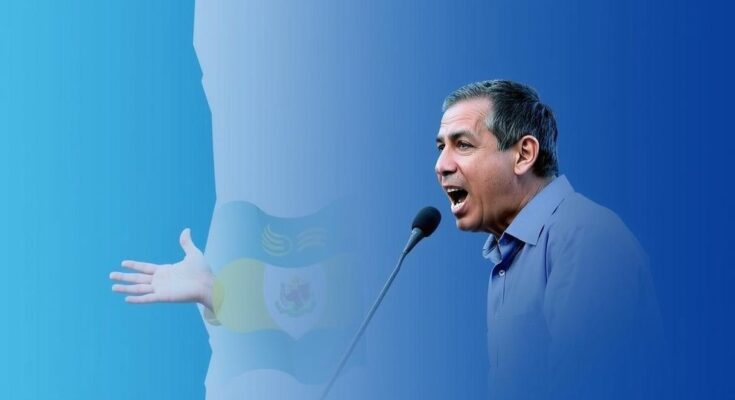Uruguay’s presidential runoff pits ruling coalition candidate Álvaro Delgado against Yamandú Orsi of the Broad Front. After a close first round, both candidates prioritize economic stability and social reform amid rising crime concerns. Voter undecision and low turnout may affect the final results, echoing the electoral tensions observed during the previous election cycles.
Uruguay held its presidential election runoff on Sunday, with the conservative ruling coalition and the left-leaning Broad Front engaged in a tight contest following an inconclusive first round. With independent pollsters preparing to release initial estimates, the outcome remains uncertain. Álvaro Delgado, the incumbent’s representative, garnered 27% in the initial vote, while Yamandú Orsi from the Broad Front secured 44%. The presence of undecided voters and the prospect of a low turnout further complicate the results.
The candidates are competing amidst concerns about rising crime rates, with each proposing different strategies to tackle this issue. Mr. Delgado, a seasoned politician, vowed to uphold President Luis Lacalle Pou’s legacy, whereas Mr. Orsi, with a background rooted in social progressivism, advocates for reforms to improve social conditions. Despite prevailing economic stability and decreasing inflation under the Lacalle Pou administration, both candidates aim to present constructive governance vis-à-vis potential unity in their future collaboration.
Their platforms reflect contrasting approaches to social policies, yet analysts have noted a shared focus on fiscal responsibility amidst the urgency for public spending reform. The election, devoid of the extreme polarization seen in other nations, underscores Uruguay’s political maturity. The outcomes of this election will shape the country’s direction in the coming years, amidst calls for stability, social equity, and economic prosperity.
Uruguay’s electoral landscape has shifted significantly in recent years, moving from over a decade of governance by the left-leaning Broad Front to the rise of a conservative coalition. As the country faces serious challenges, including rising crime rates and economic concerns, the selection of a new president has taken on critical importance. The strong voter participation and the subsequent competition between two distinct political ideologies highlight the nuanced priorities of the Uruguayan electorate, who are seeking leadership that aligns with their aspirations for both social justice and economic stability.
The recent presidential election in Uruguay is marked by a closely contested race between Álvaro Delgado of the ruling coalition and Yamandú Orsi of the Broad Front. As poll results approach, the nation awaits the eventual outcome, which will dictate the future for economic policies, social reforms, and the management of public safety. The candidates’ contrasting visions reflect not only the current political climate but also a deeper desire among Uruguayans for representation that addresses both stability and progressive change.
Original Source: gazette.com




